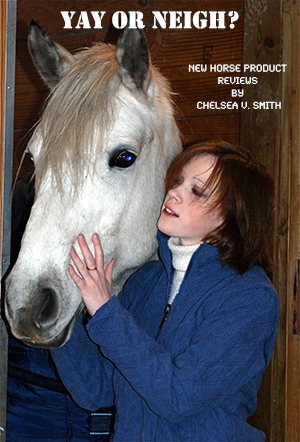News.
Continued from page 1.....
Making Equine Disease Reporting Simple and Easy: How the EDCC Was Created
By Leslie Barlow, EDCC Communication Manager
Turning tragedy and setbacks into something that could help horse owners in the future were the thoughts of Dr. Nathaniel White when he worked alongside industry representatives to create the Equine Disease Communication Center (EDCC).
The EDCC is an industry-driven service which works to protect horses and the horse industry from the threat of infectious disease in North America. The communication system is designed to seek and report real-time information about disease and help prevent the spread of infectious disease.
The EDCC was born as a result of a May 2011 Equine Herpesvirus-Neurologic (EHV-1) outbreak at a cutting horse show in Ogden, Utah. The disease outbreak spread when exposed horses dispersed to 19 states.
“That outbreak resulted in rapid spreading of misinformation and rumors nationally due to the lack of an effecting communication system,” said Dr. White, director of the EDCC. “The result was unnecessary curtailment of all types of horse activities in many states.”
This wasn’t the first outbreak that Dr. White experienced. In 2007, he was the director of the Marion duPont Scott Equine Medical Center, one of the Virginia Maryland College of Veterinary Medicine teaching hospitals, when an equine herpesvirus outbreak forced the hospital to close. The outbreak resulted in a cessation of much of the local horse industry activities.
“Although we were able to manage the medical issues including working with the Virginia State Veterinarian to establish a quarantine of the hospital and affected facilities, the rumors were rampant causing unnecessary curtailment of the surrounding horse events and associated services for several weeks,” Dr. White said. “We learned from this outbreak that there was a lack of effective communications within the industry.”
Dr. White was called upon to chair an American Association of Equine Practitioners (AAEP) task force to find how the horse industry should respond to future outbreaks. At the same time, Dr. White was working on the creation of the National Equine Health Plan (NEHP) with the American Horse Council (AHC) and the United States Department of Agriculture (USDA).
“My history with an EHV outbreak at my hospital and the current work to develop the NEHP helped to recommend establishing a communication system and biosecurity guidelines for outbreaks at horse events. I suggested the name Equine Disease Communication Center,” Dr. White said.
Dr. White said his original goal was to have a way to alert horse owners and veterinarians about infectious disease outbreaks with accurate real time information nationally. “I really wanted a way to stop the rumor mill which causes panic and disrupts horse events and travel,” he said. “I also wanted the EDCC to be the horse industry resource for factual information about diseases and biosecurity; an educational hub for horse owners and veterinarians.”
The idea for the EDCC was presented in October 2013 at the United States Animal Health Association meeting where state and federal animal health official provided feedback about the proposal. It was clear that their participation was necessary to submit confirmed information about disease outbreaks to the EDCC.
“Initially, there wasn’t much optimism that a national communication plan would work,” Dr. White said. “State veterinarians were concerned about privacy and liability, and funding was needed to support personnel and operations. Most were supportive of the idea but not sure it was possible.”
Dr. White said a national reporting system would have helped him manage the outbreak at Equine Medical Center. “I decided as long as there was support for the idea, I would help make it happen,” he said.
Jay Hickey, then president of the American Horse Council was responsible for getting the major horse organizations to support and fund the system, John Long, CEO of the United States Equestrian Federation, volunteered their IT department to make and manage a website, and the AAEP provided office space and money management through the AAEP Foundation (now called the The Foundation for the Horse). Dr. Jerry Black, then a AHC trustee, and Keith Klein at AAEP helped raise funds from companies and associations. State veterinarians Dr. Keith Roehr in Colorado and Dr. Kent Fowler in California worked to convince other state animal health officials about the potential for the EDCC.
The original reporting system was done by email submissions. It required transposing the alert for posting on the website and record keeping was done on spread sheets. Subsequently, a database was designed and used by USEF to have submitted information to automatically create the alert for the website. Anyone can subscribe to receive an alert by email when an outbreak or case is reported.
In 2015, the USDA awarded a Cooperative Agreement which provided two years of startup funding. This allowed establishing a communication manager position needed to help manage alerts seven days per week.
Bailey McCallum, who accepted the position in 2016, was instrumental in setting up the alert system and writing the disease factsheets. As a horse owner and equine specialist, she anticipated what horse owners wanted to know about infectious diseases.
Katie McDaniel took on the communication manager role in 2019. With her background in communications, she helped to renovate the website and organize the daily reporting on the website and social media. In 2023 Leslie Barlow, who has a background in communications and writing for media, continues to manage the increasing number of alerts and has initiated more press releases and is developing the outreach to highlight the EDCC and its support.
In 2022, Dr. Emily Nietrzeba accepted the role of EDCC assistant veterinarian. This position ensures that all alerts are approved everyday year-round. Emily’s background as a state animal health official brings needed expertise in disease management and infectious diseases.
EDCC provides accurate disease, biosecurity information and news on the website. This is made possible by the subject matter experts on the AAEP’s infectious disease committee, which reviews all disease information on the website. This oversight is ongoing during the year and ensures the educational resources on the EDCC website are what both horse owners and veterinarians need to improve the health and welfare of their horses.
The EDCC is supported by donations from individuals, companies, associations, and grants. “We thank our many industry partners and individual donors for supporting the EDCC,” said Dr. White. “Only with this funding can the EDCC continue to provide this valuable service.”
Dr. White said the EDCC is fulfilling its original mission and is continuously evolving with upgrades to the website and the addition of a phone app. “The database now holds all the information from 2018 and eventually will be a resource for disease surveillance. The website has a trove of disease and biosecurity information which is reviewed every three years for accuracy,” he said. This information is open to everyone and is available on the mobile phone app.
Looking forward, Dr. White said the EDCC will continue to utilize the website to provide news and medical advances for treating and preventing infectious disease.
“Ultimately, I hope that the EDCC can serve as a system that reports trends in disease by season and location. To truly know the disease prevalence, we need full participation from private practitioners and state veterinarians.”
The EDCC is an industry-driven information center which works to protect horses and the horse industry from the threat of infectious diseases in North America. The center is designed to seek and report real-time information about diseases similar to how the Centers for Disease Control and Prevention Center (CDC) alerts the human population about diseases in people. The EDCC is based in Lexington, Kentucky at the American Association of Equine Practitioners headquarters, with a website and call center hosted by US Equestrian. The EDCC is funded entirely through the generosity of organizations, industry stake holders, and horse owners. To learn more visit www.equinediseasecc.org.


